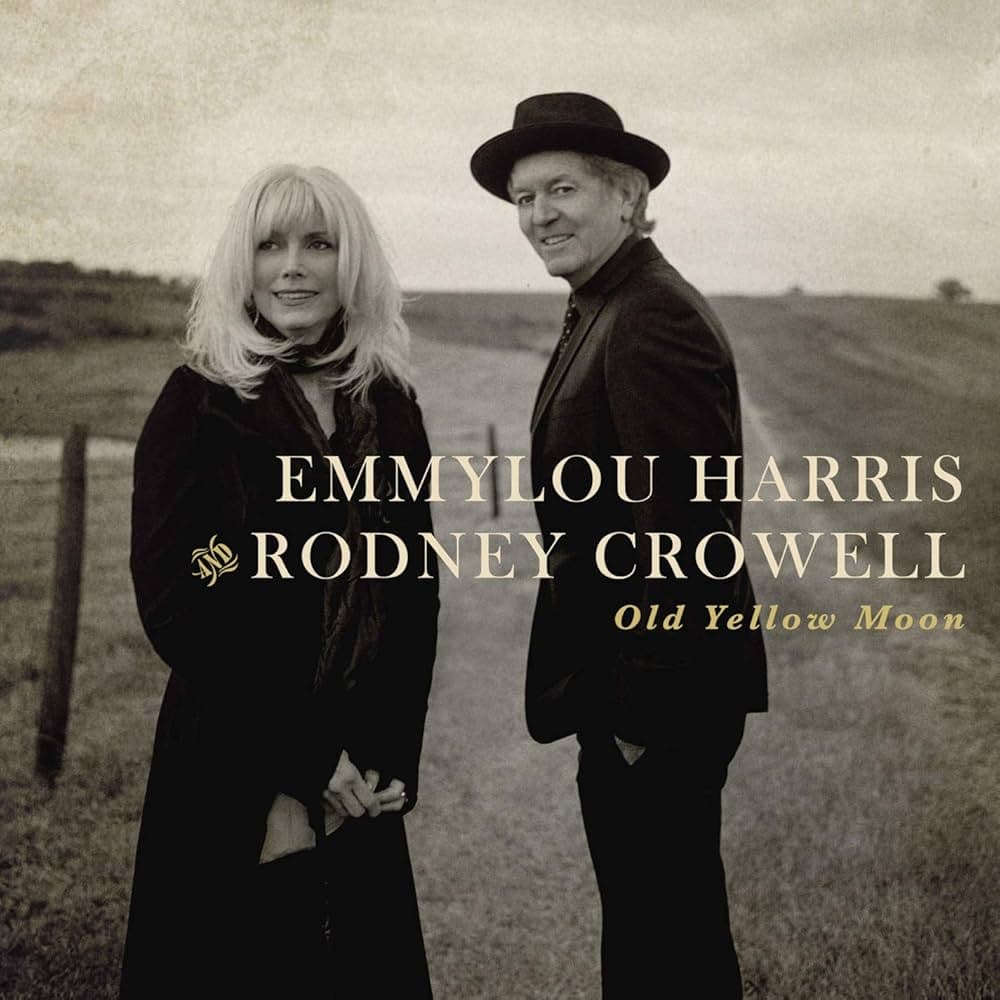
A Hymn to Time, Friendship, and the Soft Light of Life’s Late Afternoon
When Emmylou Harris and Rodney Crowell released “Old Yellow Moon” as the title track of their 2013 collaborative album Old Yellow Moon, the song quickly became a centerpiece of the record’s acclaim, helping the album rise into the top tiers of the Americana and country charts while earning the duo a Grammy for Best Americana Album. It was a reunion decades in the making—two voices, long intertwined through history, finally stepping back into the same warm glow. From the opening bars, “Old Yellow Moon” feels less like a new recording and more like a memory rediscovered, dusted off, and allowed to breathe again.
The power of this song lies not in grand declarations but in the gentle gravity of reflection. Harris and Crowell, both seasoned interpreters of American songwriting, approach the lyric with the weathered honesty that only years of artistry—and years of living—can give. Their voices, imperfect and utterly human, blend into a single timbre that feels as inevitable as it is intimate. The title itself, “Old Yellow Moon,” evokes an image suspended between nostalgia and resignation: a celestial witness to the roads already traveled, the loves already tested, and the quiet reckonings that come when one has lived long enough to see life’s contradictions more clearly.
What stands out most is the song’s deep emotional architecture. Its narrative is not about a single moment or event, but about the ongoing dance between past and present—two people looking back over the terrain of memory with both gratitude and ache. The lyrics carry a kind of worn-in wisdom: an acknowledgment that the passage of time softens certain sorrows even as it reveals the weight of choices that once seemed trivial. Harris and Crowell do not rush through these sentiments; they inhabit them. Every phrase feels carved from experience, every harmony shaped by a long history of shared artistic breath.
The instrumentation further magnifies this atmosphere. The arrangement leans into the traditions of classic country and Americana—steel guitar bending in mournful arcs, acoustic strings brushing against the melody like wind through an almost-forgotten room. There is a gentleness to the production, a refusal to overpower the emotional landscape. Instead, the song moves like dusk settling over an open field: unhurried, inevitable, beautifully subdued.
“Old Yellow Moon” endures because it captures something universal yet rarely articulated with such grace—the bittersweet comfort of looking back without bitterness, of accepting the passage of time without surrendering to it. It is the sound of two artists standing at life’s twilight, still luminous, still searching, still singing to the quiet sky.